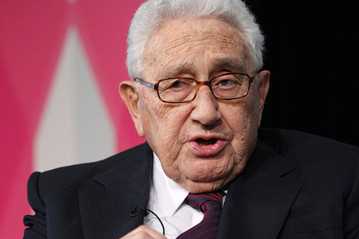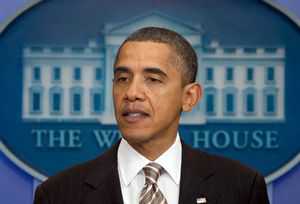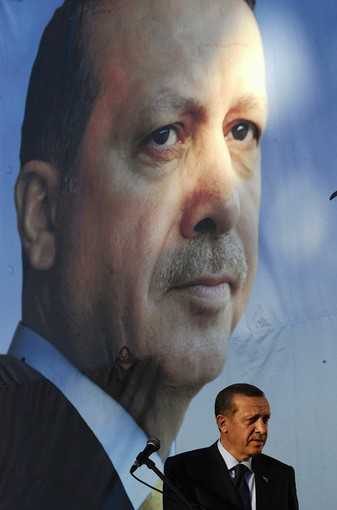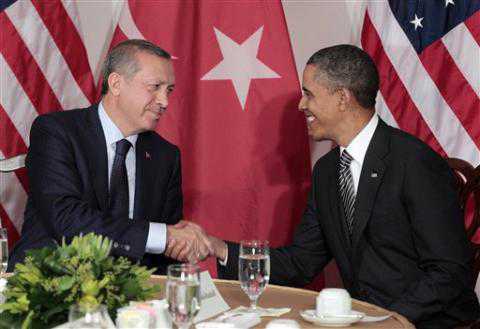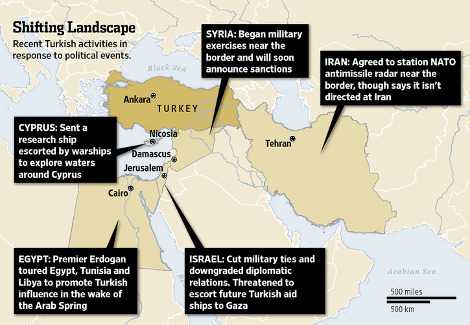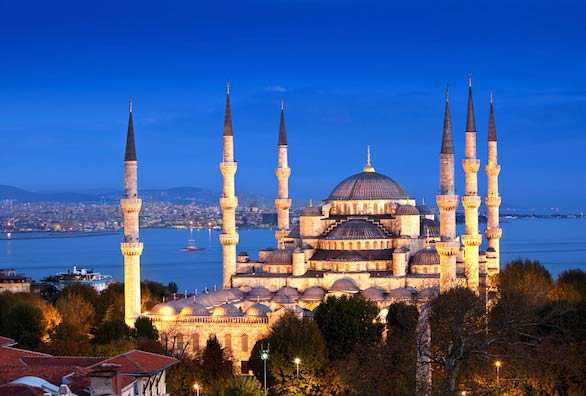Videos are springing up across the internet showing uniformed members of the New York Police Department in white shirts (as opposed to the typical NYPD blue uniforms) pepper spraying and brutalizing peaceful, nonthreatening protestors attempting to take part in the Occupy Wall Street marches. Corporate media are reporting that these white shirts are police supervisors as opposed to rank and file. Recently discovered documents suggest something else may be at work.
If you’re a Wall Street behemoth, there are endless opportunities to privatize profits and socialize losses beyond collecting trillions of dollars in bailouts from taxpayers. One of the ingenious methods that has remained below the public’s radar was started by the Rudy Giuliani administration in New York City in 1998. It’s called the Paid Detail Unit and it allows the New York Stock Exchange and Wall Street corporations, including those repeatedly charged with crimes, to order up a flank of New York’s finest with the ease of dialing the deli for a pastrami on rye.
The corporations pay an average of $37 an hour (no medical, no pension benefit, no overtime pay) for a member of the NYPD, with gun, handcuffs and the ability to arrest. The officer is indemnified by the taxpayer, not the corporation.
New York City gets a 10 percent administrative fee on top of the $37 per hour paid to the police. The City’s 2011 budget called for $1,184,000 in Paid Detail fees, meaning private corporations were paying wages of $11.8 million to police participating in the Paid Detail Unit. The program has more than doubled in revenue to the city since 2002.
The taxpayer has paid for the training of the rent-a-cop, his uniform and gun, and will pick up the legal tab for lawsuits stemming from the police personnel following illegal instructions from its corporate master. Lawsuits have already sprung up from the program.
When the program was first rolled out, one insightful member of the NYPD posted the following on a forum: “… regarding the officer working for, and being paid by, some of the richest people and organizations in the City, if not the world, enforcing the mandates of the private employer, and in effect, allowing the officer to become the Praetorian Guard of the elite of the City. And now corruption is no longer a problem. Who are they kidding?”
Just this year, the Department of Justice revealed serious problems with the Paid Detail unit of the New Orleans Police Department. Now corruption probes are snowballing at NOPD, revealing cash payments to police in the Paid Detail and members of the department setting up limited liability corporations to run upwards of $250,000 in Paid Detail work billed to the city.
When the infamously mismanaged Wall Street firm, Lehman Brothers, collapsed on September 15, 2008, its bankruptcy filings in 2009 showed it owed money to 21 members of the NYPD’s Paid Detail Unit. (A phone call and email request to the NYPD for information on which Wall Street firms participate in the program were not responded to. The police unions appear to have only scant information about the program.)
Other Wall Street firms that are known to have used the Paid Detail include Goldman Sachs, the World Financial Center complex which houses financial firms, and the New York Stock Exchange.
The New York Stock Exchange is the building in front of which the Occupy Wall Street protesters have unsuccessfully tried to protest, being herded behind metal barricades, clubbed with night sticks, kicked in the face and carted off to jail rather than permit the last plantation in America to be defiled with citizen chants and posters. (A sample of those politically inconvenient posters and chants: “The corrupt are afraid of us; the honest support us; the heroic join us”; “Tell me what democracy looks like, this is what democracy looks like”; “I’ll believe a corporation is a person when Texas executes one.” The last sign refers to the 2010 U.S. Supreme Court decision, Citizens United v. Federal Election Commission, giving corporations First Amendment personhood, which allows them to spend unlimited amounts of money in elections.)
On September 8, 2004, Robert Britz, then President and Co-Chief Operating Officer of the New York Stock Exchange, testified as follows to the U.S. House Committee on Financial Services:
“…we have implemented new hiring standards requiring former law enforcement or military backgrounds for the security staff…We have established a 24-hour NYPD Paid Detail monitoring the perimeter of the data centers…We have implemented traffic control and vehicle screening at the checkpoints. We have installed fixed protective planters and movable vehicle barriers.”
Military backgrounds; paid NYPD 24-7; checkpoints; vehicle barriers? It might be insightful to recall that the New York Stock Exchange originally traded stocks with a handshake under a Buttonwood tree in the open air on Wall Street.
In his testimony, the NYSE executive Britz states that “we” did this or that while describing functions that clearly belong to the City of New York. The New York Stock Exchange at that time had not yet gone public and was owned by those who had purchased seats on the exchange – primarily, the largest firms on Wall Street. Did the NYSE simply give itself police powers to barricade streets and set up checkpoints with rented cops? How about clubbing protesters on the sidewalk?
Just six months before NYSE executive Britz’ testimony to a congressional committee, his organization was being sued in the Supreme Court of New York County for illegally taking over public streets with no authority to do so. This action had crippled the business of a parking garage, Wall Street Garage Parking Corp., the plaintiff in the case. Judge Walter Tolub said in his opinion that
“…a private entity, the New York Stock Exchange, has assumed responsibility for the patrol and maintenance of truck blockades located at seven intersections surrounding the NYSE…no formal authority appears to have been given to the NYSE to maintain these blockades and/or conduct security searches at these checkpoints…the closure of these intersections by the NYSE is tantamount to a public nuisance…The NYSE has yet to provide this court with any evidence of an agreement giving them the authority to maintain the security perimeter and/or conduct the searches that their private security force conducts daily. As such, the NYSE’s actions are unlawful and may be enjoined as they violate plaintiff’s civil rights as a private citizen.”
The case was appealed, the ruling overturned, and sent back to the same Judge who had no choice but to dismiss the case on the appellate ruling that the plaintiff had suffered no greater harm than the community at large. Does everyone in lower Manhattan own a parking garage that is losing its customer base because the roads are blocked to the garage?
Some believe that Wall Street is given special privileges and protection because New York City’s Mayor Michael Bloomberg owes his $18.1 billion in wealth (yes, he’s that 1 percent the 99 percent are protesting) to Wall Street. The Mayor was previously a trader for Salomon Brothers, the investment bank made famous for attempting to rig the U.S. Treasury market in two-year notes.
The Mayor’s business empire which bears his name, includes the awesome Bloomberg terminal, a computer that houses enormous pricing data for stocks and bonds, research, news, charting functions and much more. There are currently an estimated 290,000 of these terminals on Wall Street trading floors around the globe, generating approximately $1500 in rental fees per terminal per month. That’s a cool $435 million a month or $5.2 billion a year, the cash cow of the Bloomberg businesses.
The Bloomberg businesses are run independently from the Mayor but he certainly knows that his terminal is a core component of his wealth. Nonetheless, the Mayor is not Wall Street’s patsy. Bloomberg Publishing is frequently in the forefront of exposing fraud on Wall Street such as the 2001 tome “The Pied Pipers of Wall Street” by Benjamin Mark Cole, which exposed the practice of releasing fraudulent stock research to the public. Bloomberg News was responsible for court action that forced the Federal Reserve to release the details of what it did with trillions of dollars in taxpayer bailouts to Wall Street firms, hedge funds and foreign banks.
Police Commissioner Ray Kelly may also have a soft spot for Wall Street. He was formerly Senior Managing Director of Global Corporate Security at Bear, Stearns & Co. Inc., the Wall Street firm that collapsed into the arms of JPMorgan in March of 2008.
There has also been a bizarre revolving door between the Wall Street millionaires and the NYPD at times. One of the most puzzling career moves was made by Stephen L. Hammerman. He left a hefty compensation package as Vice Chairman of Merrill Lynch & Co. in 2002 to work as Deputy Commissioner of Legal Matters for the NYPD from 2002 to 2004. That move had everyone on Wall Street scratching their head at the time. Merrill collapsed into the arms of Bank of America on September 15, 2008, the same date that Lehman went under.
Wall Street is not the only sector renting cops in Manhattan. Department stores, parks, commercial banks and landmarks like Rockefeller Center, Jacob Javits Center and St. Patrick’s Cathedral have also participated in the Paid Detail Unit, according to insiders. But Wall Street is the only sector that runs a private justice system where its crimes are herded off to secret arbitration tribunals, has sucked on the public teat to the tune of trillions of dollars, escaped prosecution for the financial collapse, and can put an armed municipal force on the sidewalk to intimidate public protestors seeking a realignment of their democracy.
We may be learning a lot more in the future about the tactics Wall Street and the NYPD have deployed against the Occupy Wall Street protestors. The highly regarded Partnership for Civil Justice Fund has filed a class action lawsuit over the approximately 700 arrests made on the Brooklyn Bridge on October 1. The formal complaint and related information is available at the organization’s web site, www.JusticeOnLine.org.
The organization was founded by Carl Messineo and Mara Verheyden-Hilliard. The Washington Post has called them “the constitutional sheriffs for a new protest generation.”
The suit names Mayor Bloomberg, Police Commissioner Kelly, the City of New York, 30 unnamed members of the NYPD, and, provocatively, 10 unnamed law enforcement officers not employed by the NYPD.
The lawsuit lays out dwhat has been curtailing the constitutional rights of protestors for a very long time in New York City.
“As seen in the movements for social change in the Middle East and Europe, all movements for social justice, jobs, and democracy need room to breathe and grow and it is imperative that there be a halt to law enforcement actions used to shut down mass assembly and free expression of the people seeking to redress grievances…
“After escorting and leading a group of demonstrators and others well out onto the Brooklyn Bridge roadway, the NYPD suddenly and without warning curtailed further forward movement, blocked the ability of persons to leave the Bridge from the rear, and arrested hundreds of protestors in the absence of probable cause. This was a form of entrapment, both illegal and physical.
“That the trap and detain mass arrest was a command-level-driven intentional and calculated police operation is evidenced by the fact that the law enforcement officials who led the demonstration across the bridge were command officials, known as ‘white shirts.’ ”
In April 2001, I was arrested and incarcerated by the NYPD while peacefully handing out flyers on a public sidewalk outside of the Citigroup shareholders meeting – flyers that warned of growing corruption inside the company. (The unlawful merger of Travelers Group and Citibank created Citigroup and resulted in the repeal of the Glass-Steagall Act, the depression era investor protection legislation that barred depositor banks from merging with high-risk Wall Street firms. Many of us from social justice groups in New York City had protested against the repeal but were out maneuvered by Wall Street’s political pawns in Washington.)
Out of a group of about two dozen protestors from the National Organization for Women in New York City, Rain Forest Action Network, and Inner City Press, I was the only person arrested. There was no civil disobedience occurring. Rain Forest Action Network was handing out fortune cookies with prescient warnings about Citigroup and urging pedestrians to cut up their Citibank credit cards. The rest of us were peacefully handing out flyers.
Chained to a metal bar inside the police precinct, I was grilled on any crimes I might know about. I responded that the only crimes I knew about were listed on the flyer and apparently, in New York City, one gets arrested for disclosing crimes by Wall Street firms.
A mysterious, mature, white shirted inspector who ordered my arrest on the sidewalk, and refused to give his first name, disappeared from the police report when it was filed, blaming the arrest instead on a young police officer. Citigroup is only alive today because the Federal government inserted a feeding tube into Citigroup and infused over $2 trillion in loans, direct investment and guarantees as the company veered toward collapse.
The NYPD at the time of my arrest was run by Bernard Kerik – the man President George W. Bush later sent to Iraq to be the interim Interior Minister and train Iraqi police. The President subsequently nominated Kerik to head the Department of Homeland Security for the entire nation. The nation was spared of that eventuality only because of an illegal nanny popping up. Today, Kerik is serving a four year sentence in Federal prison for a variety of criminal acts.
The New York Civil Liberties Union filed a Federal lawsuit on my behalf (Martens v. Giuliani) and we learned that the NYPD had arbitrarily established a policy to arrest and hold for 72 hours any person protesting in a group of 20 or more. The case was settled for a modest monetary award and the repeal by the NYPD of this unconstitutional and despicable practice.
Pam Martens worked on Wall Street for 21 years. She spent the last decade of her career advocating against Wall Street’s private justice system, which keeps its crimes shielded from public courtrooms. She has been writing on public interest issues for CounterPunch since retiring in 2006. She has no security position, long or short, in any company mentioned in this article. She can be reached at [email protected]
www.counterpunch.org, OCTOBER 10, 2011
